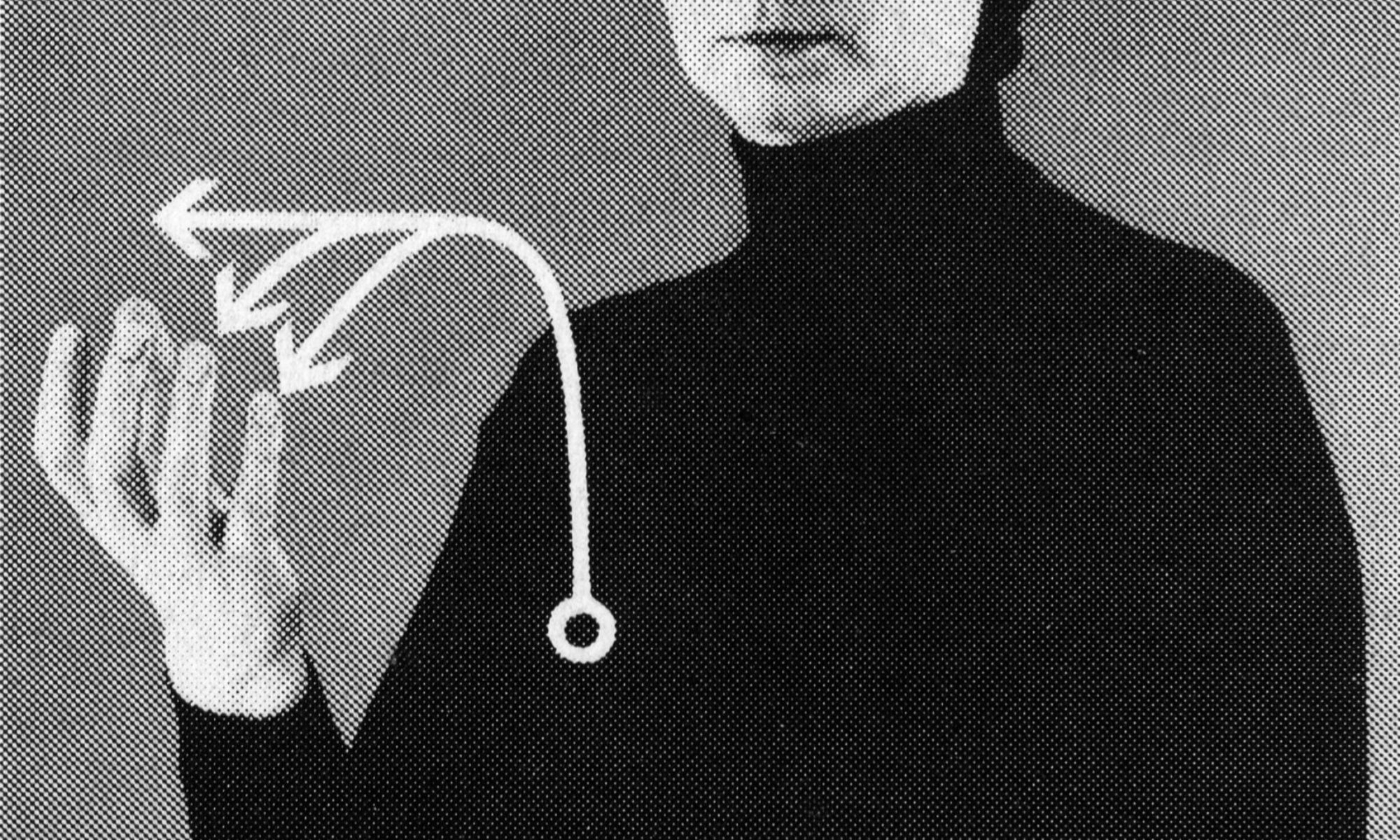Stachus (DSC02021), 2020, Fotografie
KHBI5 — Klohäuschen Biennale, 10.07.–14.08.2020

Gerade arbeite ich daran, aus einer 5 x 5 m Bild-Plane (Straßen Namen Zeichen I, 2018) ein Buch zu machen. Beim Ausbreiten haben mich die Faltenbildungen und die Verwandlung des flachen Bildes in ein neues, dreidimensionales Objekt fasziniert. Es entstand eine Installation und eine Fotoarbeit, mögliche Ausgangsform für ein anderes, zukünftiges Buch. Und zufällig hat das digitale Bild eine Nummer, in der bereits die Zahl des nächsten Jahres auftaucht, 2021, — und die so Bestandteil des Titels geworden ist.
Currently, I am working on making a book out of a 5 x 5 m canvas (Streets Names Signs I, 2018). While spreading it out I was fascinated by the folds and the transformation of the flat picture into a new, three-dimensional object. The result was an installation and a photographic work, possible starting point for another future book. And coincidentally, the digital picture has a number in which next year, 2021, already appears — and which has thus become part of the title.
Gerade (Mai 2020) habe ich einen Plan weiterverfolgt: ein Bild, gedruckt auf einer 5 x 5 m PVC-Plane, in ein Buch zu verwandeln. Das Bild würde so zum Objekt, handhabbar, begreifbar, das Einzelbild zur Sequenz. Das Ausgangsbild, ein Foto einer Gehörlosen, die den Ortsnamen „Stachus“ in Gebärdensprache darstellt, war 2018 als eines von zwei Motiven auf der Plakatwand der Kunst-Insel am Lenbachplatz in München zu sehen (Straßen Namen Zeichen I). Bisher lag es zusammengeknüllt bei mir unter dem Tisch, ein unförmiger Ballen. Es tat gut, es jetzt hervorzuholen und es zu aktivieren, nach so vielen Tagen des Stillstandes, etwas damit zu machen, auch körperlich, und sei es nur, zunächst die Befestigungsschnur am Rand abzuschneiden. Dann sollte es in kleinere Stücke/Seiten zerteilt werden.
Beim Ausbreiten haben mich die plastischen Faltenbildungen und die Verwandlung des flachen Bildes in ein neues dreidimensionales Objekt fasziniert. Haare/Kopf erscheinen als schneebedeckte Gipfel (häufig haben Berge ja auch Namen wie z.B. „Krottenkopf). Daraus entstanden Installationen im Licht eines Fensters auf dem Dachboden; davon eine großformatige Fotoarbeit, welche die Plane annähernd im Maßstab 1:1 wiedergibt. Die Monumentalität passt zum Motiv. Und erst ab einer gewissen Größe sieht man, dass es unscharfe Stellen gibt, das Bild auf der Plane pixelig, niedrig auflösend gedruckt ist (da für großen Betrachterabstand konzipiert). Ich stelle mir vor, dass beim Betrachten Fragen auftauchen: Gehört die Unschärfe zum Bild oder zum Bild vom Bild? Wie groß ist es „in Wirklichkeit“? Was mich weiter daran interessiert: Aus etwas Sprachlichem, einem Wort, wird ein Bild, daraus wird ein ganz anderes. „Stachus“, das Wort-Bild für einen verkehrsreichen Platz im Zentrum der Stadt München, wird zu einem Berg, einer Landschaft.
Mir gefällt es, weiterzudenken: Aus dem Großfoto ließe sich wiederum ein Buch machen, ein anderes als das ursprünglich geplante … 2019 habe ich, als eigene Arbeit und kleine Publikation, eine Liste erstellt, Books To Do, Bücher, die ich machen möchte. Zum Teil sind sie bereits realisiert, zum Teil nicht. Real existierende und imaginierte, nur als Idee vorhandene Bücher vermischen sich. Diese Liste ist jetzt wieder länger geworden.
Just now (May 2020) I have persued an idea: to turn a picture printed on a 5 x 5 m PVC canvas into a book. The picture would thus become an object, manageable, touchable, the single picture a sequence. The original image, a photo of a deaf person representing the place name “Stachus” in sign language, was one of two motifs on the billboard of the art island at Lenbachplatz in Munich in 2018 (Straßen Namen Zeichen I). Up to now, it was curled up under the table, a shapeless bale. It did me good to get it out now and activate it, after so many days of standstill, to do something with it, even physically, if only to cut off the fastening cord at the edge first. Then it should be cut into smaller pieces/pages.
While spreading it out, I was fascinated by the plastic folds and the transformation of the flat picture into a new three-dimensional object. Hair/head appear as snow-covered peaks (often mountains have names like “Krottenkopf”[eg. in the US: “Lions Head Mountain”]). This resulted in installations in the light of a window in the attic; one of them is a large-format photographic work, which reproduces the canvas approximately on a scale of 1:1. The monumentality matches the motif. And only from a certain size on you can see that there are blurred areas, the picture on the canvas is printed pixelated, low-resolution (because it is designed for a large viewing distance). I imagine that questions arise while looking at it: Does the blurring belong to the picture or to the picture of the picture? How big is it “in reality”? What further interests me about it: Something linguistic, a word, becomes a picture, that becomes something else entirely again. “Stachus”, the word-image for a busy square in the centre of the city of Munich, becomes a solitary mountain, a landscape.
I like to think further: the large photo could be turned into a book again, a different one than the one originally planned … In 2019, as a own work and as a small publication, I have made a list, Books To Do, books that I would like to make. Some of them have already been realized, others have not. Real existing and imagined books mix together. This list has gotten longer again.

